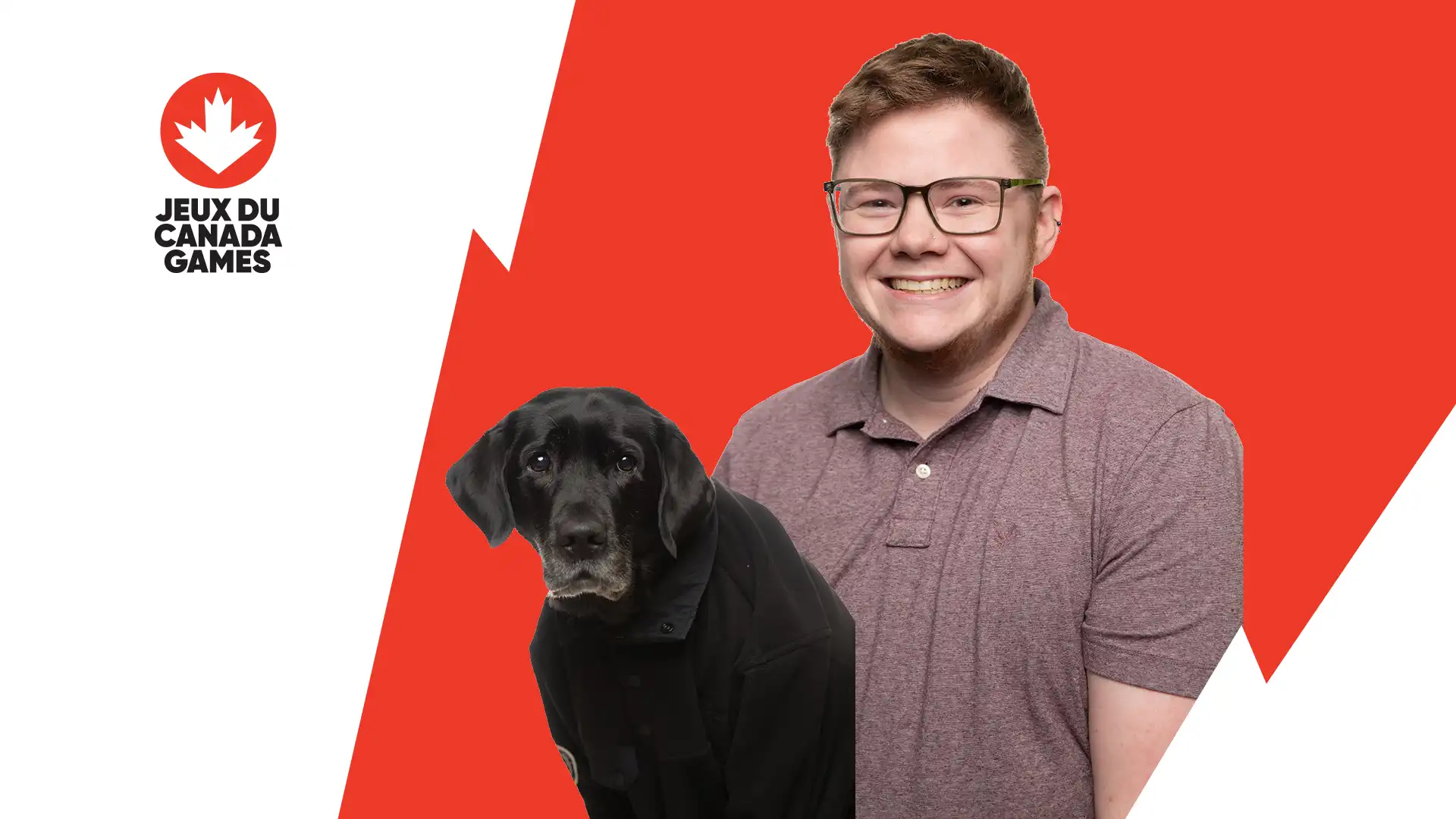Aidan Godin, Advisor of Corporate Services for the Canada Games Council, was highly recognizable in St. John’s during the 2025 Canada Games. Even if you don’t know his name, you would probably recognize Peggy, his service dog - or her custom pin.
Peggy retired as scheduled after the 2025 Canada Games, but remains as part of Aidan’s family - just without the vest.
Aidan got Peggy almost 10 years ago, after a cluster of head traumas sustained in rugby and hockey eventually reduced his hearing to a severe-profound level of hearing loss - an unforeseen possibility for him at the time.
“That is really hard to realize at 13,” Aidan said. “Because, that game is the biggest moment of high school, of your life.
“It’s really tough to know that there will be more moments, and bigger moments, and more important things, and that one more hit just isn’t worth it.”
In 2010, the desire to compete won out.
As the only 9th grader on the varsity rugby team, Aidan took a hard hit in practice. The coaches took note, pulled him from training, and said he needed to get checked out by a doctor. Aidan, having had two minor concussions before, and not feeling like anything was seriously wrong, nodded along to the coaches’ suggestions, but didn’t actually seek medical attention.
“That night, I went and played hockey,” Aidan said. “As a goalie, I hit my head off the back of the crossbar, just falling.
“My coaches said, ‘You need to go get checked.’ My parents saw it, so my parents were like, ‘You have to go get checked.’”
At this point in retelling the story, Aidan highlighted how many people had done the right thing, but also noted that he had been alone in the exam room when the doctor confirmed his concussion.
“Coaches had pulled me from play. My parents had pulled me from play. But I told everyone that the doctor said I was good, because we had our qualifiers to go to OFSAA for rugby.”
A hard hit late in the first half of the championship qualifier, on top of the existing concussion, was too much for his body to handle.
“I got knocked unconscious, and stayed out of it for a few minutes,” Aidan said. “Even when I woke up, I wasn’t in it, really, at all, so they called and paramedics came.”
In the short-term, Aidan was in hospital for about a week, with amnesia as one of the most prominent symptoms, continually waking up thinking it was still gameday.
Over the next year, Aidan would continue to experience the headaches associated with concussions, in addition to the first signs of hearing loss.
“It was probably two months after the concussion, where my mom thought I just wasn’t hearing her clearly,” he said. “But maybe it was just ‘teenager not listening.’”
Six months after the hit, an audiologist confirmed mild hearing loss. Over a two-year period, the auditory nerve damage and damage to his cochleas from his sports injuries reduced his hearing further, to where it remains today.
Reflecting on the injury and his recovery, Aidan noted that everyone can play a role when someone has a concussion. After diagnosis, the process becomes one of rest and reduced screen time, which can be isolating, especially for young athletes.
“So it is nice, when you open up your phone, to see messages from teammates, checking in, making sure you’re okay.
Being a good teammate to those who have concussions can go a long way.”
The Sport Information Resource Centre has led the country by organizing Concussion Awareness Week. Aidan’s story helps to continue that conversation and sheds light on
additional potential consequences of head injuries that cause concussions.










